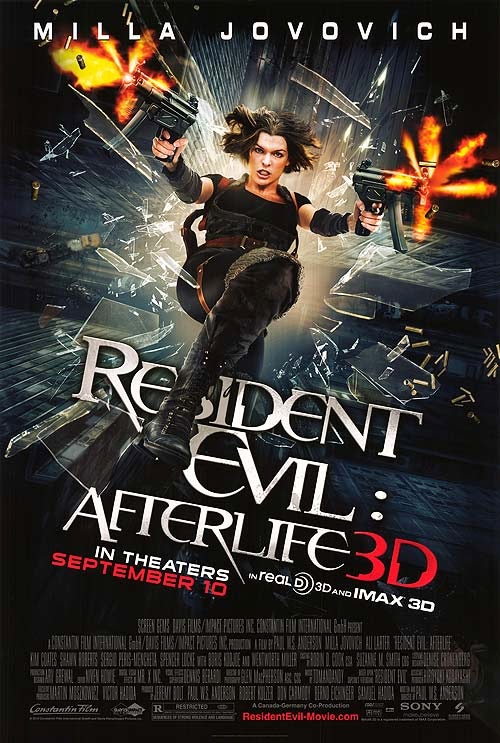Movie name: Natural Born Killers - The Director's Cut
Year of release: 1994/2009
Director: Oliver Stone
Stars: Woody Harrelson, Juliette Lewis, Robert Downey Jr., Tommy Lee Jones, Tom Sizemore, Arliss Howard, Rodney Dangerfield, Pruitt Taylor Vince, Russell Means, O-Lan Jones, Evan Handler, Balthazar Getty, Joe Grifasi
Genre: Action, Crime, Drama
Score out of ten (whole numbers only): 8
Synopsis:By the time "Natural Born Killers" came out, Summer of 1994, Oliver Stone was already a celebrated director. The 80s saw him winning Oscars for films that were iconic and who definitely had a strong point of view, namely "Salvador", "Platoon", "Wall Street" and "Born on the Fourth of July". The 90s proved to be more hit or miss with the director, but he started out with a great film, "JFK" that again proved what a controversial and artistically driven director he is. He had some misses with "Heaven and Earth", "The Doors" and to a certain extent, "Any Given Sunday", but "Natural Born Killers" easily stands out as one of his most controversial films (and to date, one of his best). The film follows the love story of two young serial killers of sorts, Mickey and Mallory Knox. Both these characters cause mayhem and destruction, till they get caught and sent to prison. The media circus that follows turns them into big stars. Following an interview in prison with shock host, Wayne Gale, both Mickey and Mallory attempt a final escape into freedom.
Oliver Stone used as a premise a story written by Quentin Tarantino (who said that the film was nothing like what he had intended), but he took it far beyond that. If the story was originally conceived as a different version of "True Romance" or "Bonnie and Clyde", Oliver Stone painted a larger canvas. The film turned out to be more a metaphor for our celebrity obsessed society, for a generation who glamorized television above everything, where the notions of good and bad are warped, where the 15 minutes of fame mean everything. Oliver Stone used his kinetic editing process, mixing different types of film, animation, video, to create a mosaic of images that bombard the characters (and us) at all times. The film polarized opinions because many thought it glorified violence, but the director clearly set out to do the opposite - behind that whole violence there's an irony of how television embraces it and mixes it to make everything more acceptable to standard palates. In the end, the film clearly states that everyone embraces anything that TV presents, the utmost violence, as long as the viewers keep watching. The film to this day, makes it's point loud and clear, with the plethora of reality-TV shows that are on the networks. Oliver Stone had many problems with censorship, but the recently released uncut version, allows to see the film in it's original version. It also allows to see the fantastic performances of Juliette Lewis and Robert Downey Jr. A fantastic film worth watching!
Year of release: 1994/2009
Director: Oliver Stone
Stars: Woody Harrelson, Juliette Lewis, Robert Downey Jr., Tommy Lee Jones, Tom Sizemore, Arliss Howard, Rodney Dangerfield, Pruitt Taylor Vince, Russell Means, O-Lan Jones, Evan Handler, Balthazar Getty, Joe Grifasi
Genre: Action, Crime, Drama
Score out of ten (whole numbers only): 8
Synopsis:By the time "Natural Born Killers" came out, Summer of 1994, Oliver Stone was already a celebrated director. The 80s saw him winning Oscars for films that were iconic and who definitely had a strong point of view, namely "Salvador", "Platoon", "Wall Street" and "Born on the Fourth of July". The 90s proved to be more hit or miss with the director, but he started out with a great film, "JFK" that again proved what a controversial and artistically driven director he is. He had some misses with "Heaven and Earth", "The Doors" and to a certain extent, "Any Given Sunday", but "Natural Born Killers" easily stands out as one of his most controversial films (and to date, one of his best). The film follows the love story of two young serial killers of sorts, Mickey and Mallory Knox. Both these characters cause mayhem and destruction, till they get caught and sent to prison. The media circus that follows turns them into big stars. Following an interview in prison with shock host, Wayne Gale, both Mickey and Mallory attempt a final escape into freedom.
Oliver Stone used as a premise a story written by Quentin Tarantino (who said that the film was nothing like what he had intended), but he took it far beyond that. If the story was originally conceived as a different version of "True Romance" or "Bonnie and Clyde", Oliver Stone painted a larger canvas. The film turned out to be more a metaphor for our celebrity obsessed society, for a generation who glamorized television above everything, where the notions of good and bad are warped, where the 15 minutes of fame mean everything. Oliver Stone used his kinetic editing process, mixing different types of film, animation, video, to create a mosaic of images that bombard the characters (and us) at all times. The film polarized opinions because many thought it glorified violence, but the director clearly set out to do the opposite - behind that whole violence there's an irony of how television embraces it and mixes it to make everything more acceptable to standard palates. In the end, the film clearly states that everyone embraces anything that TV presents, the utmost violence, as long as the viewers keep watching. The film to this day, makes it's point loud and clear, with the plethora of reality-TV shows that are on the networks. Oliver Stone had many problems with censorship, but the recently released uncut version, allows to see the film in it's original version. It also allows to see the fantastic performances of Juliette Lewis and Robert Downey Jr. A fantastic film worth watching!



















